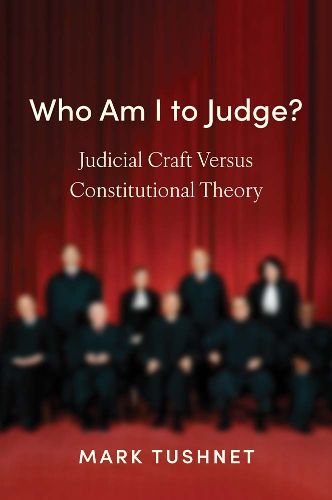Readings Newsletter
Become a Readings Member to make your shopping experience even easier.
Sign in or sign up for free!
You’re not far away from qualifying for FREE standard shipping within Australia
You’ve qualified for FREE standard shipping within Australia
The cart is loading…






A leading legal scholar asks a fundamental question: Do we need a theory of constitutional interpretation?
Do we need a theory of constitutional interpretation? It is a common argument among originalists that however objectionable you may find their theory, at least they have one, whereas their opponents do not have any theory at all. But as Mark Tushnet argues, for most of the Supreme Court's history, including some of its most exceptional periods, the Court operated without a theory. Justices tempered their understanding of the Constitution with reasoned judgment that balanced legal tradition, regard for public policy, the circumstances of the case before them, and their own views of what was moral and just. In this book, Tushnet shows us what a constitutional theory actually is; what judges need from it and why they probably can't get what they need; and the great harm that results when judges allow theory to dictate bad policy. It is not theory that matters, Tushnet argues. The vitally important, indispensable quality in a judge is good judgment.
$9.00 standard shipping within Australia
FREE standard shipping within Australia for orders over $100.00
Express & International shipping calculated at checkout
A leading legal scholar asks a fundamental question: Do we need a theory of constitutional interpretation?
Do we need a theory of constitutional interpretation? It is a common argument among originalists that however objectionable you may find their theory, at least they have one, whereas their opponents do not have any theory at all. But as Mark Tushnet argues, for most of the Supreme Court's history, including some of its most exceptional periods, the Court operated without a theory. Justices tempered their understanding of the Constitution with reasoned judgment that balanced legal tradition, regard for public policy, the circumstances of the case before them, and their own views of what was moral and just. In this book, Tushnet shows us what a constitutional theory actually is; what judges need from it and why they probably can't get what they need; and the great harm that results when judges allow theory to dictate bad policy. It is not theory that matters, Tushnet argues. The vitally important, indispensable quality in a judge is good judgment.